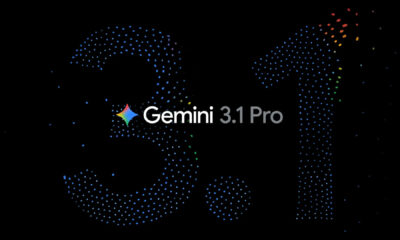TECHNOLOGY
VMware launches developer, data and security services for sovereign clouds

VMware has unveiled innovations and technology partnerships that it says help accelerate sovereign digital innovation and enhance security for customers around the world.
Today, more than 50 VMware Sovereign Cloud providers in 33 countries are part of a powerful, interconnected, and diverse ecosystem that supports customers’ sovereign cloud requirements. Together, VMware and VMware Sovereign Cloud partners are helping organizations unlock the innovative power of their data while remaining compliant with data privacy regulations.
VMware’s Sovereign Cloud initiative is a global ecosystem of CSPs committed to helping customers comply with rapidly growing and changing data privacy laws. VMware Sovereign Cloud providers must self-attest to a framework of guiding principles, best practices, and technical architecture requirements to deliver cloud services that adhere to the data sovereignty requirements of the specific jurisdiction in which that cloud operates, as mandated by the relevant government or commercial body.
Rajeev Bhardwaj, vice president, product management, cloud provider platform, VMware, said: “VMware Sovereign Cloud empowers nations with unparalleled data security and control, revolutionizing the way governments harness the potential of the cloud.
“Through our innovative sovereign cloud portfolio, global ecosystem of validated VMware Sovereign Cloud partners, and unmatched ecosystem of third-party solutions, we are enabling governments and highly regulated industries to embrace the limitless possibilities of the cloud while safeguarding their digital sovereignty.”
Better Securing Sovereign Cloud Workloads
In sovereign cloud, customers are seeking the utmost in control over and access to data. Owning encryption keys in the cloud allows customers to maintain the level of control they demand. VMware Sovereign Clouds now support Bring Your Own Keys (BYOK) and Bring Your Own Key Management Systems (BYO-KMS). By letting customers create and hold their own “keys” to their data, customers can be more confident that no one else, not even the CSP, can view or access their information without permission.
BYOK provides customers with greater flexibility and portability for data encryption on their terms, enables adherence to specific key management policies associated with their business and regulation, and helps address legal requirements for data within any given jurisdiction. With key ownership comes the responsibility of robust key management to avoid compromising the encrypted data or accidental loss of keys rendering the data useless.
Thales is the newest VMware ecosystem partner for KMS services. BYO-KMS with Thales CipherTrust Data Security Platform and VMware Cloud Director helps ensure data in a sovereign cloud environment remains more secure, accessible only by those authorized, and compliant with national data sovereignty standards. Thales CipherTrust Data Security Platform delivers a unified data security solution that helps ensure robust encryption and key management on VMware Sovereign Clouds. The platform enables organizations to maintain absolute control over their data keys, facilitating compliance with stringent regulations and integrated to a VMware Cloud Director instance for simple access to the customer’s own key management services.
Delivering New Sovereign Data Services
VMware Cloud Director extension for VMware Data Solutions enables sovereign cloud customers to deliver a portfolio of on-demand caching, messaging, and database software at a massive scale to developers. CSPs can offer tenants an integrated solution, which allows them to operate and manage data-as-a-service across private clouds and sovereign clouds. VMware Cloud Director also enables sovereign cloud providers to leverage ecosystem partners to deliver integrated data services. VMware is now adding:
- NoSQL as a Service featuring MongoDB: NoSQL databases are favored in highly regulated industries due to their scalability, ability to handle diverse data types, and adaptability to changing data structures without extensive redesign. NoSQL databases support rapid transaction speeds, continuous data availability, and robust security measures, including encryption and role-based access. Their ability to process vast volumes of training data sets make them ideal for AI/ML applications.
- Kafka as a Service: Kafka is ideally suited to support real-time analytics applications such as real-time fraud detection in finance, patient monitoring in healthcare, and other regulated industries where data integrity, compliance, and timely decision-making are crucial.
- Greenplum as a Service: Greenplum is ideal for large-scale and comprehensive data analytics, making this solution especially pertinent in sovereign clouds where data residency and compliance with local regulations is the priority. With Greenplum, customers in regulated industries can better facilitate data-driven decision-making while enabling adherence to jurisdictional boundaries and local laws such cyber threat analysis.
- Object Storage as a Service with NetApp StorageGRID: NetApp StorageGRID enables cloud services providers to offer a wide range of high-value storage services that are resident and compliant within the sovereign domain. This fully S3-compliant storage solution supports a wide range of sovereign cloud use cases with data durability and high availability, more secure multitenancy, horizontal scalability and data protection. The solution’s universal compatibility in its native support for industry-standard APIs, such as Amazon S3 API, helps ensure smooth interoperability across diverse cloud environments. Unique innovations such as automated lifecycle management help ensure more cost-effective safeguarding, storage, and long-term preservation of customers’ unstructured data.
Enabling Developer-Ready Sovereign Clouds
VMware’s approach to delivering developer-ready sovereign clouds emphasizes a unified hybrid cloud infrastructure that provides consistent experiences across various cloud environments while enabling compliance, data residency, and enhanced security. Integrating developer-centric tools such as VMware Tanzu enables rapid application deployment, while VMware NSX offers enhanced precision controls around data flow and security which are vital for data sovereignty. VMware is expanding support for developer-ready sovereign clouds with the following:
- VMware Tanzu Mission Control Self-Managed: Now in general availability, Tanzu Mission Control Self-Managed meets the demand for advanced, compliant management tools for cloud-native applications in sovereign clouds. For customers in regulated industries with stringent regional jurisdictional requirements, Cloud Services Providers can now deliver multi-tenant Kubernetes Infrastructure as a Service in their data centers, centrally manage Kubernetes, and seamlessly apply security policies across tenant container workloads.
- Content Hub in VMware Cloud Director 10.5: VMware Content Hub for Cloud Director enables partners and their sovereign tenants to rapidly deploy vetted and pre-configured applications that are compliant and more secure. Sovereign cloud providers can deliver applications that meet jurisdictional and regulatory requirements without sacrificing agility or control while enabling consistent application experiences. Integration with VMware Cloud Director platform also helps simplify access to cloud resources.
- Integrated support for NVIDIA GPUs and NVIDIA NGC Marketplace: VMware has further improved the user experience and reduced administrative overhead for deploying GPU apps with NVIDIA GPU support in VMware Cloud Director. This helps unlock the ability for sovereign cloud customers to support artificial intelligence, deep learning, graphics-intensive visual rendering applications, and computation-heavy workloads. Customers can also now access and deploy NVIDIA applications from the NVIDIA Global Connect (NGC) Marketplace directly to a Tanzu Kubernetes Grid infrastructure with GPU operators configured automatically. Partners deploying this repository for customers can help accelerate the integration of AI models and tools for developers, helping to simplify the software development cycle for next-generation AI products.
VMware Sovereign Cloud Providers Help Customers Drive Innovation with Better Security
The Government of Monaco partnered with Monaco Cloud, a VMware Sovereign Cloud provider, to deliver the with digital infrastructure and services required to meet the highest international security and compliance standards. Jean Charles, CIO for the Government of Monaco, said, “Monaco stands as one of the countries with the highest level of security in the world. The Principality of Monaco aims to establish itself as a robust digital hub, just as it has been a strong financial center, and data confidentiality and security is paramount to this. VMware’s sovereign cloud strategy and services align perfectly with Monaco’s commitment to a more secure, digitally advanced government and nation.”
4ways is a leading UK-based tele-diagnostics provider serving over 90 NHS Trusts, community diagnostic hubs, and private healthcare organizations with radiology reporting. Alex Sweeting, Head of IT at 4ways, said, “Our NHS clients demand service assurance and zero downtime. The NHS needs us to deliver on our strict SLAs for diagnostic reporting. 4ways partnered with Redcentric Solutions Ltd to migrate from an on-premises infrastructure into Redcentric’s Sovereign cloud in two UK data centres. We are now backed by a significant Sovereign Cloud provider with a wealth of experience and technical experts that we trust and can rely on, which extends the capabilities of our own internal team. The adoption of VMware Sovereign Cloud platform enables us to elevate our resilience and business continuity posture, adopt advanced cloud capabilities, and provide the quality of service our clients expect.”
Want to learn more about cybersecurity and the cloud from industry leaders? Check out Cyber Security & Cloud Expo taking place in Amsterdam, California, and London. Explore other upcoming enterprise technology events and webinars powered by TechForge here.
















